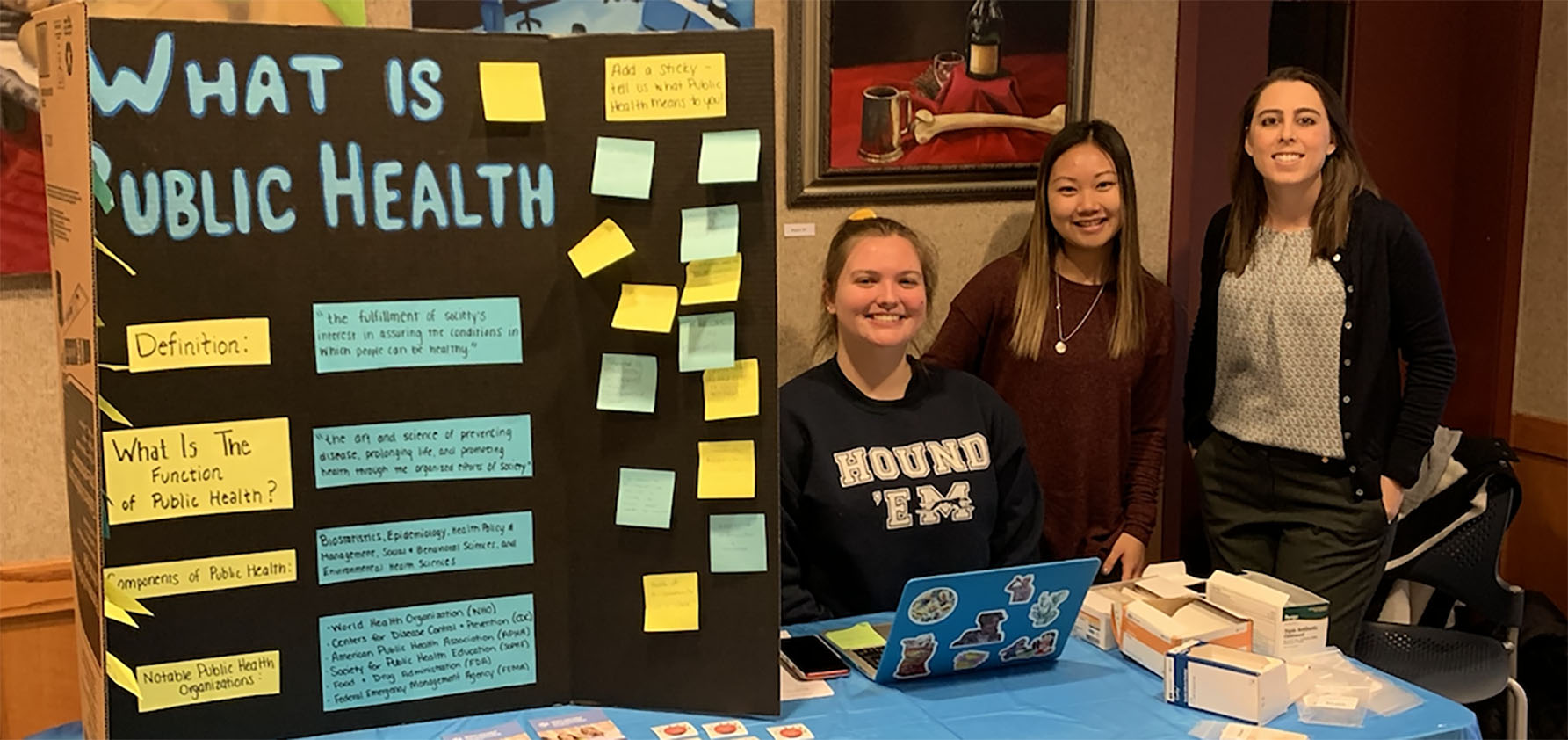
Colleen Payton received her bachelor of science in psychology from Fairfield University in Fairfield, Connecticut, and then attended Thomas Jefferson University in Philadelphia where she received her master of public health and doctorate in population health sciences. Inside Moravian asked Payton about her interest and research in public health and to share some of her favorite things outside academia.
What drew you to your academic discipline?
Public health has added 25 years of average life expectancy over the last century. Public health focuses on preventing disease and promoting health within communities. It is a broad discipline that influences many aspects of our lives. We can thank public health professionals when we access healthy food in our neighborhood, brush our teeth with fluoridated water, receive immunizations to protect against infectious disease, drink clean water, receive blood pressure screenings in the community, breathe air that is free from tobacco smoke, and wear a seatbelt while driving in the car. Public health interventions can save millions of lives at a time. For these reasons and many more, I am passionate about public health. I was drawn to public health because it provides me with an opportunity to work with organizations in my community on health projects. I enjoy analyzing health data, problem-solving to find feasible solutions, and advocating for social justice and health equity.

What are your research interests and why are you drawn to them?
My main area of research is focused on refugee health. I have collaborated with partners across the country to examine the prevalence of communicable and non-communicable disease, women’s health screenings, and vaccinations among newly arrived refugees to the United States. I am vice chair of the Research, Evaluation, and Ethics Committee of the Society of Refugee Healthcare Providers. This work provides me with an opportunity to collaborate with other researchers across North America to utilize my epidemiology skills and strategize on programs and policies to address inequities in healthcare access.
My research has also focused on the organizational climate for workplace lactation support in Pennsylvania from the perspectives of employers, employees, and workplace lactation experts. I was elected section councilor for the American Public Health Association’s Maternal and Child Health (MCH) Section and am the cochair of the MCH Section’s professional development committee.

Are there any specific moments from your experience with students that stands out in your mind as special?
I am the faculty advisor for the Public Health Club, the COVID Campus Coalition, the Society for Public Health Education Collegiate Champions, and the Food Recovery Network. I am excited to work with an exceptional group of students who are applying their public health skills on campus and within the community. Students have led projects such as a coat drive for newly arrived refugees, DIY first-aid kits for students, Stop the Bleed training, public health messaging on social media, and weigh the waste events.
Share something about yourself that people may not know.
I love traveling internationally and domestically with my husband. I enjoy visiting new places, learning about diverse cultures, and eating unique foods. One of my goals is to travel to all fifty states.
What is your favorite spot on campus?
The Sally because that is where I spend time teaching students and conducting research.
What is your favorite Moravian University tradition?
Heritage Day. I have enjoyed working with Moravian University faculty, staff, and students on service projects in the community.
What do you enjoy doing with your free time?
My favorite thing to do outside of my work at Moravian is go hiking because I enjoy being outside in nature.